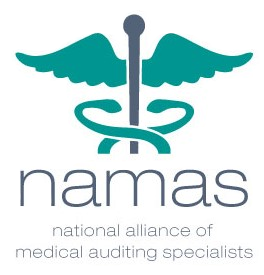Ever since COVID happened, I have heard a lot about immunizations and how some people feel about them. This article isn't about my feelings on immunizations or vaccines; it is about the who, what, when, and the codes. Even as an adult, I didn't realize that there may be new vaccines (like shingles) or boosters to other vaccines (tetanus) you will need as an adult.
The Who, What, When
Immunizations/vaccines are developed to help humans fight off diseases and viruses. The Advisory Committee on Immunization Practices (ACIP) develops recommendations for U.S. immunizations, including ages that vaccines should be given, number of doses, time between doses, and precautions and contraindications. There is a schedule of immunizations put out by the Centers for Disease Control and Prevention (CDC). Even adults should be up to date on immunizations/vaccines. The CDC provides a table of vaccines and schedules, including a catch-up schedule.
Visit: https://www.cdc.gov/vaccines/hcp/imz-schedules/index.html
Billing and Coding
Many states supply immunizations to medical providers who then should provide them at no cost, only charging the administration fee. Pharmacies also offer immunizations, and they bill the patient's pharmacy benefits.
Some family practices do not understand that Medicare beneficiaries have access to immunizations/vaccines under their Part D plan (at a pharmacy) and not their Part B (medical) plan. Medicare Part B covers services provided by a physician. Medicare Part D is the pharmacy benefit plan. At the time of writing, Medicare Part B covers flu, pneumonia, hepatitis B, and COVID-19 vaccines.
Coding for Immunization Administrations for Vaccines/Toxoids are in the Medicine section of the CPT book, under codes 90460-90480. Vaccines/Toxoids coding is also found in the Medicine section of the CPT book under codes 90476-90759 and 91300-90759.
Codes 90460-90461 are reported when a physician or other qualified healthcare professional also provides face-to-face counseling to the patient/family during the administration of the vaccine from birth through 18 years of age. When there is no face-to-face counseling to the patient/family, and only vaccine administration to a patient over 18 years of age, you report 90471-90474.
Codes 90632-90758 are a list of all the immunizations and vaccines ranging from hepatitis A to Zaire ebolavirus vaccine. When billing these codes, make sure that you are also including the National Drug Code (NDC) on your claim. Most clearinghouses and insurance carriers expect the codes to come to them in an 11-digit format, which looks like: 5-4-2. The first five numbers are assigned to the manufacturer or labeler of the drug; the next four indicate the strength, dosage form, ingredient, and route of administration; and the final two numbers indicate the packaging. If the medication you are administering is one number short, you add a zero (0) in front of the number where it is short.
Some of the immunizations are also classified by a HCPCS J code, and some payors will prefer the J code over the 9XXXX codes. If you are seeing denials for codes that should be paid, be sure to research payor preference here.
Code 90479 is used for an unlisted vaccine/toxoid.
Codes 90637 and 90638 were added, effective July 1, 2024, for two new flu vaccines.
Conclusion
Make sure to check payor policies for coverage of immunizations/vaccines to avoid denials.
Source: Andrea McGuire, CMPE, CPPM, CEMA, COSC, CPC
Andrea McGuire CMPE, CPPM, CEMA, COSC, CPC, with Alaska Medical Billing and Coding Solutions LLC

About NAMAS
NAMAS (National Alliance of Medical Auditing Specialists) is a premier resource for healthcare professionals seeking expert guidance in medical auditing, compliance, and documentation improvement. With a focus on education and certification, NAMAS provides ongoing support through webinars, training sessions, and resources designed to enhance accuracy, compliance, and professional development in the healthcare industry.

